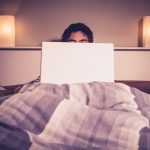Summary: A analyze has located that common youngsters get significantly less snooze, and popular teenager girls have additional sleeplessness signs and symptoms. Scientists from Sweden and Australia analyzed slumber designs of above 1,300 young adults, identifying that social standing impacts snooze duration and excellent. The study implies that psychological and social requires affiliated with popularity could disrupt snooze, a phenomenon noticed even prior to the popular use of smartphones. Further more investigation is wanted to discover these results and produce focused sleep interventions for teens.
Essential Takeaways:
- A research analyzed more than 1,300 Swedish young people and identified that people with larger social standing reported up to 27 minutes considerably less slumber for each night time.
- Well-liked teenage women working experience significantly additional sleeplessness signs as opposed to their male counterparts and much less common friends.
- Researchers discovered that the effect of level of popularity on snooze quality persisted just before and following the advent of smartphones, suggesting other fundamental social and psychological factors are at play.
Popular teens get less slumber, with preferred ladies remaining extra very likely to report insomnia indications, a research finds.
Teenagers typically battle to get the advised eight to 10 several hours of snooze for every night time due to later on melatonin release and heightened alertness in the night. Compounding this, the teenage years are marked by raising tutorial pressures, extracurricular pursuits, increasing independence, and the complexities of social relationships, which all vie for their time and can disrupt rest.
Recognizing that social dynamics are normally an forgotten aspect in adolescent sleep reports, scientists from Sweden and Australia released an investigation into how peer popularity influences the snooze designs of teenagers aged 14 to 18.
“Here we clearly show that common young people noted shorter slumber duration. In particular, well-known girls, but not boys, described far more insomnia indicators,” says Serena Bauducco, PhD, a snooze researcher at Örebro University and 1st creator of the analyze, in a launch. “Most apparently, popularity also seems to negatively effects sleep both right before and just after the introduction of smartphones.”
The study is revealed in Frontiers in Snooze.
Popular and Sleepless
In a sample of extra than 1,300 Swedish teenagers, almost 50 percent of them female, the researchers examined if reputation coincided with shorter slumber period. They questioned teens to nominate up to three mates, and those people acquiring the most nominations had been defined as more well-known. These youngsters slept fewer than their peers, the most popular ones up to 27 minutes.
When the researchers looked at boys and ladies separately, they also observed a correlation between recognition and insomnia indications: Additional popular ladies skilled extra sleeplessness signs and symptoms, these kinds of as issues to slide or keep asleep or waking up way too early. Well known boys did not experience these indications to the exact same extent.
These sexual intercourse dissimilarities are not nevertheless totally comprehended, but the truth that boys and girls have interaction in differing friendship behaviors may possibly give insights. “Girls specific a lot more treatment and problem with their pals and engage in helping behaviors additional than boys. This may well necessarily mean they carry these issues when it is time to tumble asleep,” Bauducco states in a launch.
Phones May well Not Reveal the Popularity-Sleep Website link
“We also see that acceptance has been linked with even worse slumber equally prior to and after the advancement of handheld interaction technological innovation,” says Bauducco in a release. This suggests that it could not be smartphones that cause common teens to sleep considerably less as an alternative, other mechanisms could be at play.
The scientists speculate that a lot more buddies might necessarily mean more time focused to them which could final result in considerably less time remaining for sleeping. A lot more emotional financial commitment, far too, could direct to sleeping challenges. Both equally explanations would use to moments before and right after smartphones turned popular. This, however, desires to be investigated in detail, the scientists say.
Racking Up Slumber Personal debt
“Teenagers are arguably the most slumber-deprived inhabitants during the lifespan,” states Bauducco in a launch. “Previous scientific studies show that 30 minutes of extra sleep can guide to enhanced psychological health and improved university functionality.”
With schools beginning early, quite a few youngsters check out to catch up on rest on weekends—a tactic that can backfire. “Suppose a teenager sleeps in on Sunday right until 1 pm. Falling asleep that evening to be ready for school the up coming day will be a wrestle for the reason that they won’t feel worn out,” Bauducco says in a release. “Delaying wake-instances too considerably can contribute to preserving the dilemma of snooze debt racked up during the week.”
The researchers believe that that talking about social norms about slumber and anticipations of friends about bedtime are a missing element of current rest interventions for adolescents. Also, more exploration is required to study the mutual partnership amongst social connectedness and snooze and to glow light-weight on the uncovered intercourse discrepancies.
Photo 126964892 © Antonio Guillem | Dreamstime.com




Leave a Reply